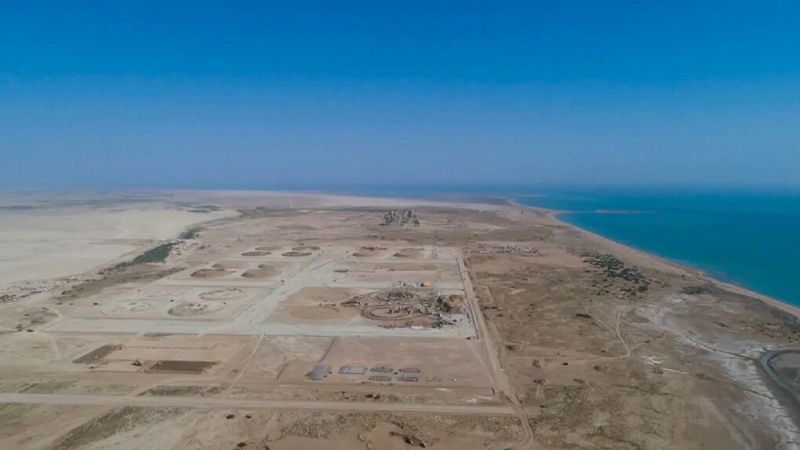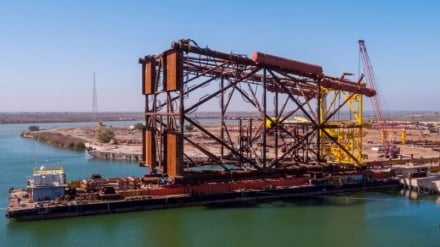New oil terminal gives Iran greater geopolitical power
A new oil exports terminal which Iran inaugurated on the Sea of Oman last week cuts travel time by five days, sharply reducing transportation expenses, its head says.
The $2 billion Jask terminal officially became operational by loading 300,000 barrels on an oil tanker last Thursday, with President Hassan Rouhani hailing it a "historic day" when Iran could rid of reliance on the single Kharg terminal.
"Considering the cost of fuel and leasing of a 2-million-barrel tanker for a 5-day journey, using the Jask oil terminal reduces expenses by at least $300,000 in total," Reza Dehkordi told IRNA news agency on Wednesday.
"This creates a competitive advantage and gives the buyer access to faster and less expensive cargo in terms of lower fuel, ship rental, premium and port costs, etc. which is in the interest of Iranian oil buyers in general," he added.
This reduction in costs is even greater when the tanker is leased for a single shipment, with rentals reaching $70,000 per day.
The opening of the Jask terminal marked the first ever export operations from the Sea of Oman in the over 110-year history of Iran's oil, because all shipments were carried out from the Persian Gulf.
Iran relied on Kharg Island for more than 90 percent of its crude shipments and on smaller terminals of Lavan, Sirri and Soroush, while its condensate exports are handled by the Assaluyeh terminal, all of which are located in the Persian Gulf.
Kharg, once the world's largest offshore crude oil terminal, is geographically the best location for Iran's oil exports, but its facilities are in need of a major overhaul, having been put into commission first in the 1950s.
"The need for the Jask oil terminal as back-up to Kharg Island had always been felt," Dehkordi said. "We can now export Iranian oil at the lowest cost and safest conditions through Jask in the Sea of Oman."
The new route allows Iran to bypass the Strait of Hormuz, lending Iran a major geopolitical privilege. According to Dehkordi, the geopolitical significance of the terminal is in bringing Iranian oil closer to the market.
"For oil exports, we seek to attract our customers and be able to create a showcase where all countries could choose Iran as the first and most desirable country to buy oil," he said.
"To achieve this goal, we have to take big steps to reduce customer costs, and by building this terminal, we have made huge cuts in ship fuel consumption and rental expenses."
A 1,000 km, 42-inch pipeline carries heavy and medium crude oil from Goureh in the Bushehr province to Jask in the Hormozgan province. The current capacity of the pipeline is 300,000 bpd and will be completed to reach 1 million bpd, Minister of Petroleum Bijan Zanganeh said last week.
Dehkordi said, "Due to its location in a strategic region in West Asia, Iran has always been a transit route for energy and oil in the world, and if we want to produce power, we must turn potential geopolitical capacities into actual capacities."
SS



